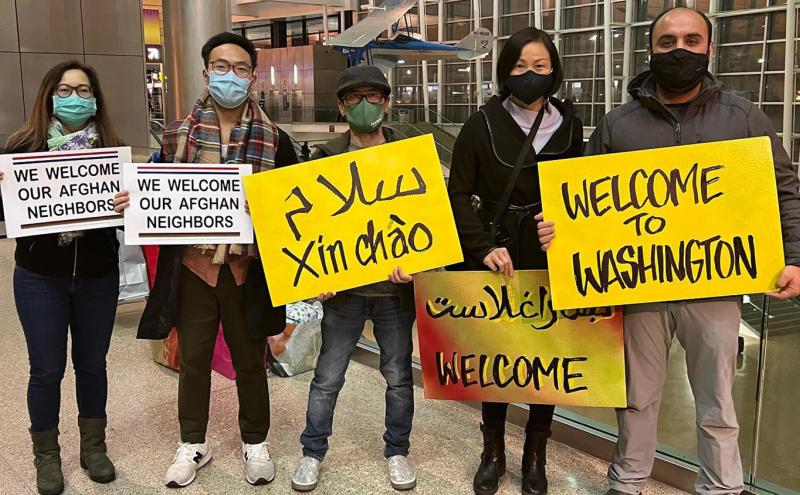
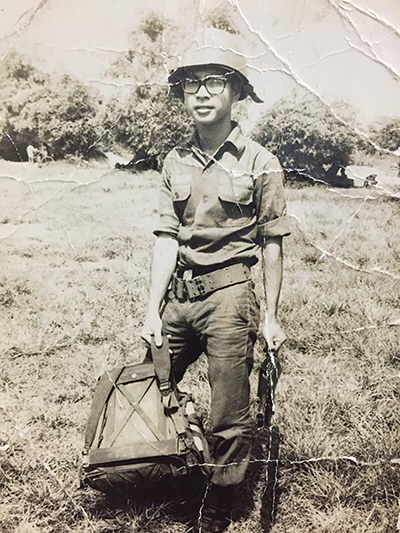
When Bao-Tram Do and her family stepped off the plane at Seattle-Tacoma International Airport (SEA) and onto U.S. soil for the first time, it marked the start of a new life. It was December 1993, Do’s third birthday. Do, her parents and three siblings — two older brothers and younger sister — had come to the United States, fleeing political persecution in Vietnam. The fall of Saigon and the United States’ withdrawal from Vietnam in 1975 marked the communist takeover and the beginning of what would become one of the largest and longest refugee crises in history. During this time, Do’s father was detained in a re-education camp as a political prisoner of war for eight years before the family could flee to safety.
Welcome to SEA
Although many childhood memories have faded over the years, Do still remembers the first time she entered the terminal at SEA decorated for the holiday season — the trees, lights, and festive decorations bringing warmth and cheer despite the cold weather outside.
And she cherishes a photo of that day. Her family smiles for the camera in the airport in the region that would become their new home, decorated with bright holiday lights for the holidays. They're surrounded by the fellow refugees and resettlement agencies who came to help them with their next step in this journey.
When the new International Arrivals Facility opens to the public in 2022, travelers from across the globe will experience a new and improved welcome to the Pacific Northwest. It will be a memorable experience with a better arrival process for international passengers and a friendly, beautiful, and more efficient introduction to the airport and the region.
Giving back
Shortly after landing in Seattle, Do’s family started their new life in South Seattle’s Rainier Beach neighborhood. By the 1990s, the mass support that was present for the first wave of Vietnamese refugees had faded. Refugee families were often supported by community-based organizations or local churches. Do’s family also received support from Vietnamese refugees who had resettled in Seattle before they did and from Do’s father’s military friends, and local food banks.
In high school, Do connected with Summer Search, an organization that serves first generations of low income students through mentoring, firsthand experience, post-secondary advising, and career support. Through this support, Do became the first person in her family to go to college. The continued support from the nonprofit world inspired Do and influenced her own career trajectory. She attended graduate school at Johns Hopkins University as a Gates Millennium Scholar, receiving her Master of Public Health. She worked for over a decade in philanthropic organizations as a grant maker, seeking to give back to others in the same way she had been supported over the years.
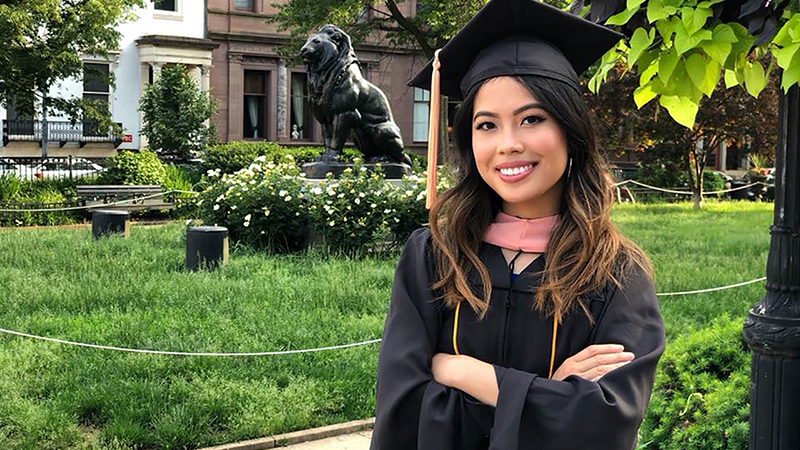
Building a life
According to Do, her parents’ hard work enabled her to pursue her own dreams. Do’s parents started out cleaning restaurants and delivering newspapers to make ends meet. Today her father has worked for an outdoor recreational company for more than 25 years, running machines and welding, and her mother worked as a housekeeper at the downtown Westin. Her father will retire this year as the company moves operations to Las Vegas.
“A lot of refugee family parents’ first priority is survival and getting the resources they need to feed their families and have a roof over their heads. Refugee parents’ dreams are with their children,” Do said. “I am grateful that my generation has opportunities for self-actualization and creativity.”
She said after the trauma and violence her parents experienced in their home country, they were looking for a better future for their family.
“When I was working in philanthropy, I was at the Westin a lot for luncheons. As a guest there, it was humbling to remember that my mom worked there.”
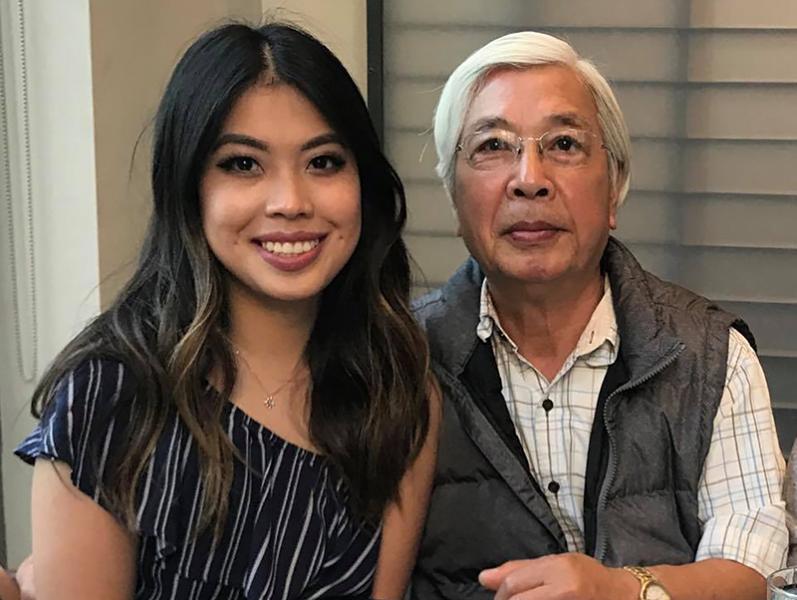
Pursuing her passion
As the pandemic made many people re-evaluate their lives and work, Do decided it was time to take a step back from her philanthropical work and pursue a creative passion. She quit her job in September 2021 to grow her floral design business. What had started as a pandemic hobby became Emerald City Flowers, where Do creates modern and luxurious floral designs. Keeping her options open, she also applied and was accepted into a Doctoral program in public health and is evaluating next steps.
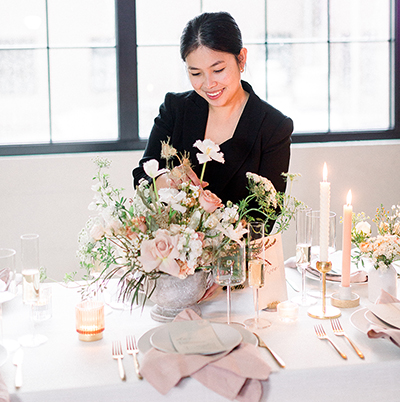
She described flowers as a different kind of first responder during the pandemic — “an emotional first responder.”
“Everyone deserves to feel special,” she said. “My floral design work has allowed me to connect with people when isolating, help other people connect, and be there for people through different experiences, from sad to happy moments.”
Facing challenges
The recent Afghan refugee resettlement efforts hit close to home for Do, and she has been directing support to groups like Viets for Afghans that support current resettlement efforts in Seattle.
“We share a history of trauma and geopolitical conflict,” she said. “The general public or media might be losing interest, but we are still doing it and we’d love to get more support.”
Despite the life she has built for herself, the concept of the American Dream is complicated for Do, bringing mixed emotions.
“The American Dream is possible, but it is not accessible to everyone. In some ways I believe in it, but I’m reminded that it leads to false ideas of meritocracy, of people being pulled up by their bootstraps. There are so many economic and racial inequities, we need to be centering communities and removing systemic barriers so that people can feel like they belong and thrive. We need to focus on building up communities so we are not doing things alone. We can support one another and get through different challenges."
Returning to SEA
So much has changed at SEA since Do first arrived in 1993, but stepping inside SEA airport still evokes the same warm feelings for her.
“It still feels like a welcome, warm place to be,” she said.
Her first time flying after her arrival to the United States was part of the Summer Search program, traveling first to Maine and later to Northern India.
“The airport is the entryway to the rest of the world and I’ve always found it very accessible,” she said. “It’s an exciting place to be and I love the changes that have been happening with the investment in different terminals and the focus on local businesses.”
Bao-Tram Do Floral Arrangement photo credit: Huoy Chen


